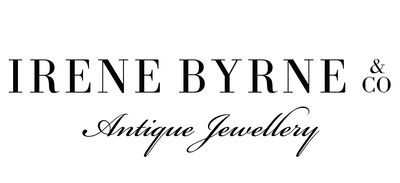Pierre Sterlé - Paris France

The "High Jewellery Couturier" of Paris
Pierre Sterlé, born in 1905 into a Parisian family, found his calling in jewellery design following the early death of his father during World War I. Under the mentorship of his jeweller uncle, Maynier-Pinçon, Sterlé developed a profound passion for the craft.
In 1934, he established his own workshop on Rue St-Anne, quickly gaining the attention eye of prestigious houses like Boucheron, Chaumet, and Ostertag who used his skilled craftsmanship and creativity in their own designs.
By 1939, Sterlé's distinctive style had attracted a dedicated clientele, leading him to create exclusively bespoke pieces for individual clients. His relocation to 43 Avenue de l’Opera in 1945, reflected his desire for exclusivity, distancing himself from the commercial bustle of Place Vendôme.
Sterlé's collaboration with haute couture designers thrust him into the limelight, and his innovative designs, characterised by bold combinations of coloured stones and diamonds, became synonymous with high fashion.
Sterlé was renowned for his technical mastery, introducing groundbreaking techniques like 'cheveux d’ange' (angel’s hair) in 1957, which involved crafting intricate gold wire chains. His later designs, often featuring motifs such as birds, animals, and flowers celebrated for their originality and baroque, asymmetrical style.
Despite personal financial challenges in the 1960s due to an unsuccessful venture, Sterlé's jewellery continued to garner acclaim.
In the 1970s, after selling his business to jewellery design house, Chaumet, he continued to design under their aegis, until his death in 1978. Pierre Sterlé's legacy as a visionary jeweller endures, with his creations remaining highly sought after by collectors and connoisseurs worldwide.
Timeline
Born: 1905, Paris, France
Designed For: Boucheron, Chaumet, Ostertag, Kirby and Puiforcat
1934: Opened first workshop on Rue St Anne, Paris at the age of 29 years.
1945: Moved to Avenue de l'Opera, on the Place Vendome.
Height of Career: 1940s to the 1960s.
Designs: Exclusive; Bold and highly experimental. Each piece was viewed by Sterlé as a work of art. His designs focused on elegant lines and the constant search to create movement in his pieces.
Clientele: Paris' forefront of fashion, he aligned himself with haute couturiers and selectively chose to design jewels for individual clients. He considered himself an artist and he only designed one-of-a kind, 'works of art', he even went as far as creating real gold fabric for evening bags which he embellished with diamonds.
Famous clients:
- King Farouk, Egypt.
- President El Khoury, Libya.
- President Vargus, Brazil.
- Wife of Maharaja of Baroda.
Gemstones: Used for their colour and texture over their intrinsic value.
1950s - Nature inspired motifs, designed in in an abstract way.
1957 - Invented the unique gold work technique cheveux d’ange or "angel hair" which created a mesh-like, woven quality to the gold by braiding of gold wire into short sections of dense chain to form articulated fringes on his jewels
1960 - Designs became very exuberant and more abstract.
- Sold his business to jewellery house, Chaumet.
Sterlé's Signature Mark


Sterlé's Designs

 STERLÉ YELLOW CEYLON SAPPHIRE RING, 1940
STERLÉ YELLOW CEYLON SAPPHIRE RING, 1940
STERLÉ OLIFANT BROOCH
STERLÉ, OLIFANT BROOCH - ANNOTATED DRAWING
STERLÉ, ARGINE BROOCH, QUEEN OF CLUBS







